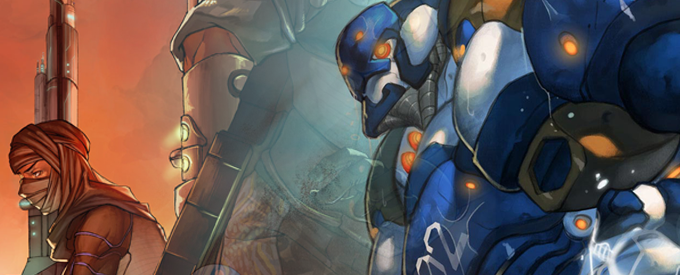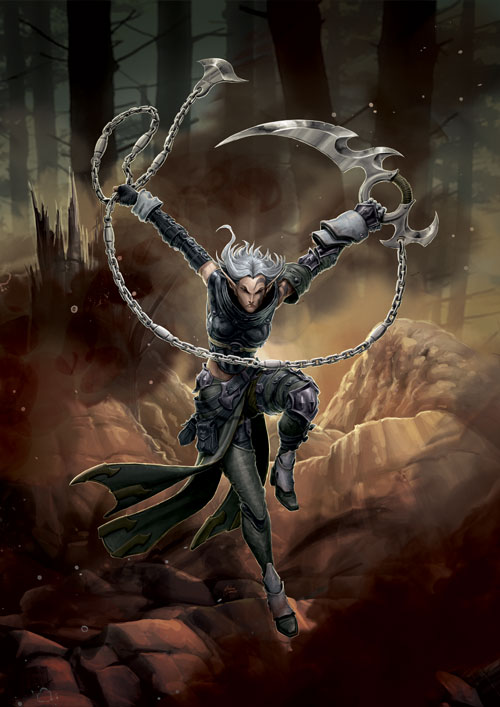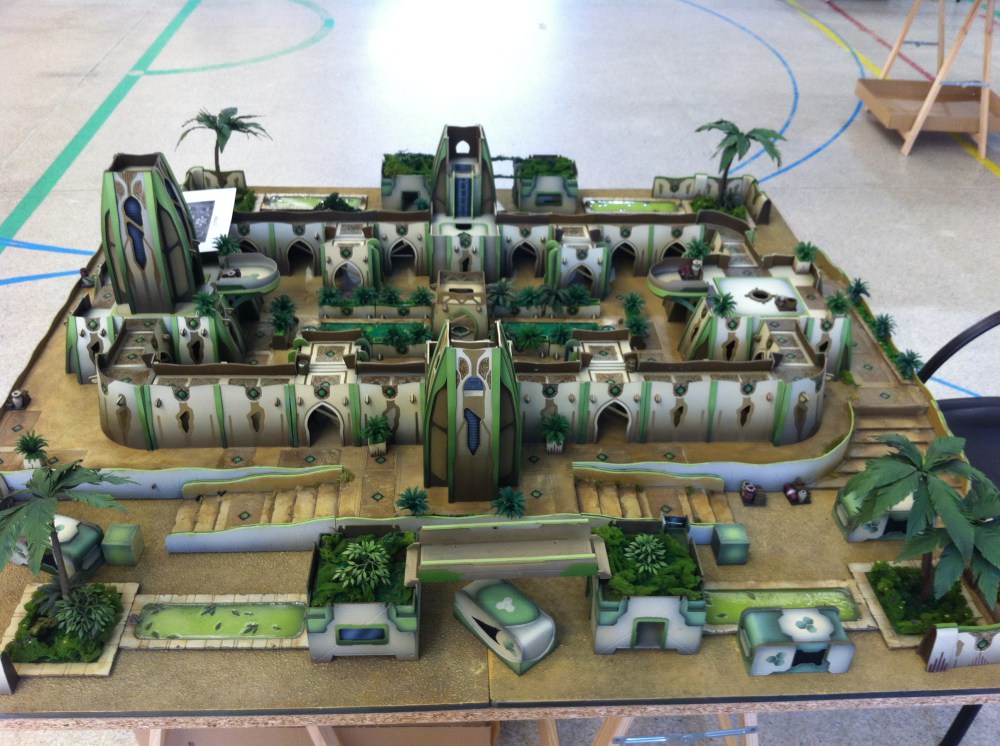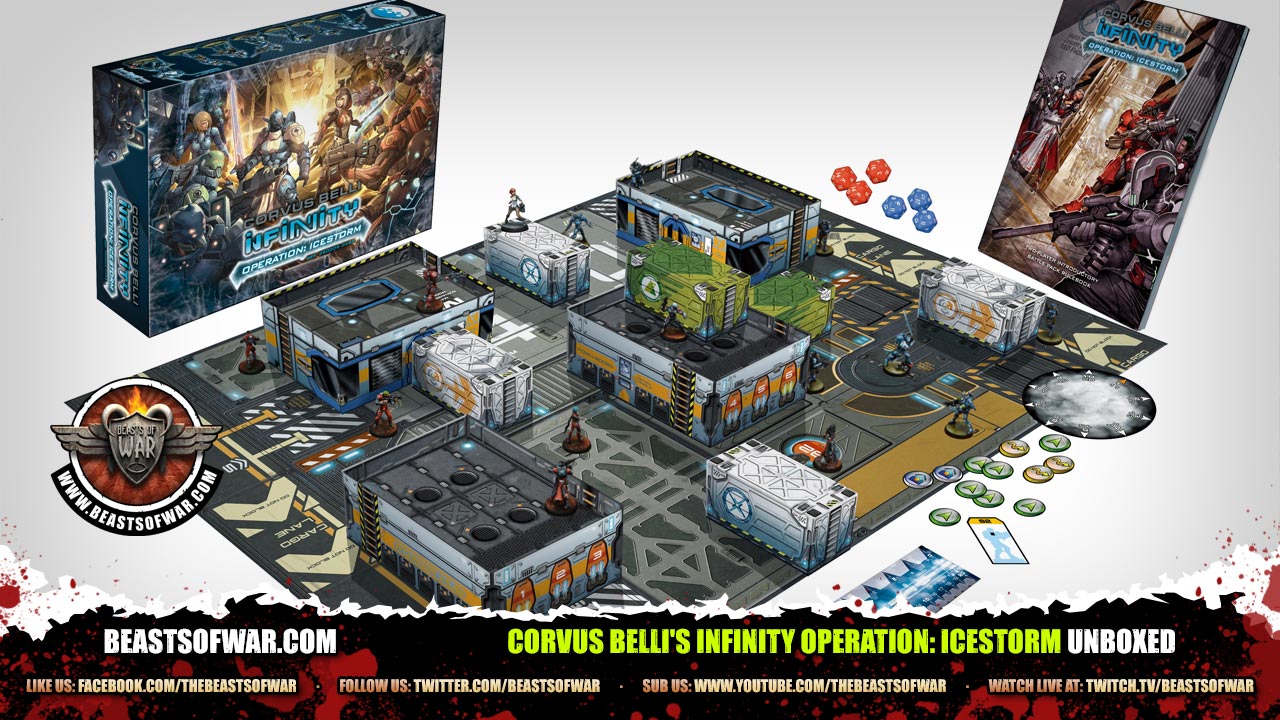I went to a tournament over the weekend that reminded me why I like to play in tournaments. It was a great experience where I got to meet and play against a bunch of new, cool folks and test out my little group of toy soldiers against some other folks’ groups of toy soldiers. It was great.
I don’t, as a general rule, like competitive games. I like them even less when I’m playing solo against a single opponent. I get a lot more pleasure and fun out of working together with people to overcome some obstacle, rather than working singly against another person to defeat them. I don’t get a lot of pleasure in asserting my dominance over another person in any medium, and less so when it’s my friends. The closest I get is a sort of academic interest in seeing what the outcome might be, but I don’t really enjoy it for its own sake. It’s a little better when it’s team vs team, because then I’m at least working alongside people. It’s not my favorite thing, but it’s more fun than one-on-one duels.
All of this makes Infinity (and other minis games) a kind of odd standout for me. What I really like about minis games is that it’s two people playing out a big battle that looks REALLY cool on the tabletop, with groups of minis that can often reflect a bit about the person in terms of how they look and which ones have been chosen. My Warmachine lists paint a picture of a person who bides his time until an opening appears, then goes for a quick, efficient assassination. When I used to play Kodra, his lists displayed a person who liked to build efficient, effective engines with interlocking pieces that rolled across the battlefield. Our lists reflected a difference in approach and personality, but we were playing the same game.
I used to play Warmachine very competitively, and got frustrated with it. What started to frustrate me about Warmachine once I started playing it very competitively was that I stopped having friendly interactions with my opponents. They were civil, polite, amiable interactions, but there was no give and take and no real sense that we were both trying to make the game fun for the other person as well as ourselves. The game was about making my combo work and stopping the opponent from doing the same. It was fun when my combos worked, and not fun when they didn’t, and it often felt like a zero-sum game. It was something I grew to miss from playing it very casually early on with a smaller group of close friends, and I stopped playing it for quite a while as a result.
Infinity revived my interest in minis games because it demanded that I play with a certain amount of give and take with my opponent. Every action required both players’ participation, so both people were engaged the whole time. It’s a stark departure from the my-turn-your-turn setup in other games, and it means that I always have something to do, and always have a chance to make something work out in my favor, even if the odds are long. At the same time, it means that I have to stay on my toes if I’m winning, there’s no point in the game where victory is basically assured and I can just do as I please. On top of all of that is this layer of exciting action– there are a lot of cool things you can do in the game as both the active and the reactive player, so there’s always a chance for your one troop to be an unexpected hero instead of a casualty.
Because there’s so much engagement on both sides of the table at all times, there’s a lot of casual etiquette that comes up with the game. It’s perfectly reasonable in Infinity to say “I’m going to walk up here but stay back far enough so that you can’t see me,” and only the most curmudgeonly player will respond with anything other than “Okay, you can get to about… there, but any further and I’ll be able to see you.” It means that games are frequently won and lost on tactics and strategy and a couple of important die rolls rather than precision eyeballing and “gotcha!” moments. I won a lot of Warmachine games through simply being better at eyeballing distances than my opponents; I have not once ever won an Infinity game on that basis, and I like it a lot more.
I’m not catching my opponent’s off-guard with an attack angle that they thought was safe but ever-so-slightly misjudged, or some combo that they didn’t see coming, or some rules interaction that they weren’t expecting; I win my games on tactics and a bit of luck, and I feel good about my games whether I win them or lose them. I also have opponents genuinely take the time to thank me for fun games in Infinity and exchange more than polite, rehearsed “Thank you”s and handshakes. It’s something that rarely ever happened in other games I’ve played, and a big part of why I’ve stayed in Infinity and love to bring new players into the fold.
That last bit is kind of important to me. There are plenty of games that I like that I wouldn’t recommend to other people. Infinity is a game that I like that I would recommend to other people, particularly people who’re into sci-fi and want to try a relatively inexpensive minis game. My experience with the Infinity communities is that they’re welcoming and generally really great folks. The people who I don’t enjoy playing against are rare, and tend not to last long in the game. It takes a certain amount of adjustment, because it’s a very different experience than a lot of one-on-one games, but I like it all the better for that.




